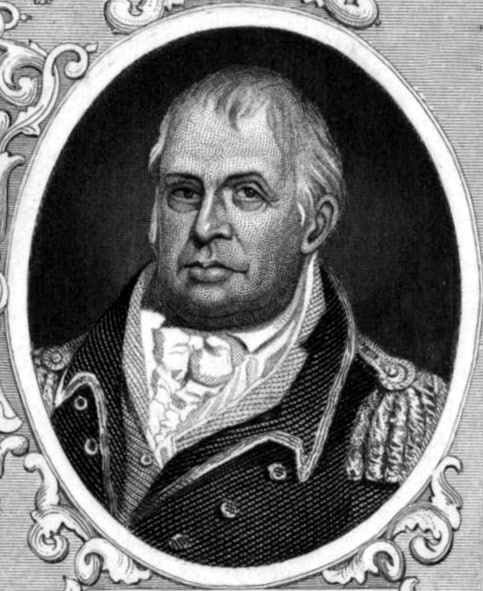William Heath was a resident of the Massachusetts Bay Colony who served as a Major General during the American Revolutionary War. He became well-known for his actions during the Battles of Lexington and Concord and General George Washington's lack of trust in his ability.

Jump to:
William Heath Facts: Early Years
William Heath lived in Roxbury, Massachusetts, on a farm that was settled by his ancestors. Like many of the provincial leaders in Boston, Heath's family had lived in Boston for multiple generations and was a well-known name. His family had came to Boston in the mid-1630s, just eight years after the original Puritan settlers arrived to build their City on a Hill.
Heath became interested in the local militia and was well-respected among his peers. He was elected as a member of the oldest chartered military organization in North America, the Ancient and Honorable Artillery Company of Massachusetts, and was elected Lieutenant in 1768 and its Captain in 1770.
William Heath was active in the political arena around Boston and, with his home in Roxbury, would have lived on William Dawes route during the Midnight Ride.
William Heath Facts: Boston Campaign
William Heath lived in Roxbury and took part in the Battles of Lexington and Concord. Since he lived on the route of William Dawes, he was alarmed later during the march to Concord but played a key role when Lord Percy brought out his heavy guns to try and disperse the provincials during their retreat.
After the British were pushed back into Boston, the provincials surrounded them and put the city of Boston under siege. During the siege, William Heath took charge of training the militia. His work on training the militia and the accolade he earned at Lexington and Concord landed him a promotion to brigadier general of the newly formed Continental Army.
William Heath Facts: After Boston
George Washington never believed in Heath's ability, so he transferred him to a location where fighting was unlikely. He was instructed to attack Fort Independence as support for Washington's attack on Trenton and Princeton, but Heath messed up, and the attack never took place. The patriots won an important battle at Trenton and Princeton, but Heath's reputation suffered.
He did take part in the Battle of Saratoga and replaced Benedict Arnold, after his treason, as commander of the Highland Department.
After the war, William Heath helped ratify the Constitution and remained a local public figure. He did not get involved in politics as much as many of the other Revolutionary War Generals but remained influential.
He died at his home in Roxbury, Massachusetts, on January 24, 1814. He lived long enough to see the nation he helped create go to war with Britain again in the War of 1812. He died before seeing the Treaty of Ghent take place.
